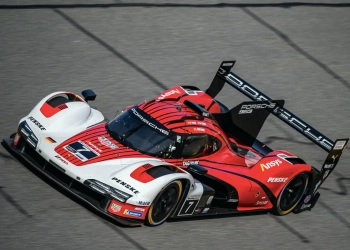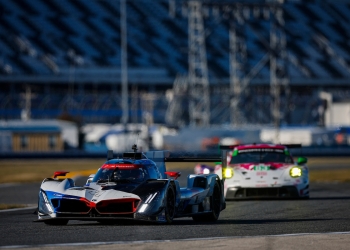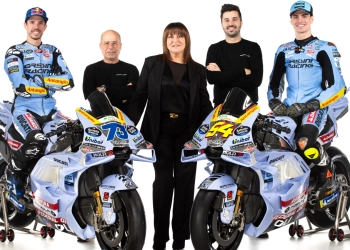Haas Team Principal Guenther Steiner says the squad is likely to continue using Brembo brakes during next weekend’s Spanish Grand Prix.
Haas trialled Carbon Industrie material during in-season testing in Bahrain, and again in Russia’s Friday practice sessions, before reverting to Brembo products for the remainder of the race weekend.
Steiner says the VF-17s will continue to be equipped with Brembos for the 66-lap race at the Circuit de Barcelona-Catalunya amid further evaluations, stressing that implementing a long-term solution will take time.
“We started off with Carbon Industrie brakes in Sochi,” said Steiner.
“We weren’t getting enough cooling for them, and if you don’t cool them enough, you overheat the brake itself and the pedal gets long. Also, the wear is very high.
“We looked into it to see if we could survive a race, but we realised we could not. Therefore, the decision was taken to go back onto the Brembo. As it stands now, we will race Brembo in Barcelona.
“To figure out how we can fix the problem will take a bit, but we will get there. It isn’t an easy problem to solve. We will take our time.
“We know what we’ve got after our Bahrain test with Carbon Industrie brakes, and after Sochi in FP1 and FP2. We know what we need to do and what needs to get done, but it will take a little bit of time.”
Steiner described Romain Grosjean as being “pretty happy” with Brembo’s latest updates, while adding that Kevin Magnussen preferred using the Carbon Industries.
“Romain was pretty happy with the latest iteration of Brembo, he said he’s ok with it,” Steiner commented.
“Kevin liked the Carbon Industries better because the bite is better. He just has a better feeling with the CI brakes.
“Now we need to get the Carbon Industries working and see where we stand before coming to the absolute conclusion. I’ll be happy when we can check this off of our list.”
Steiner also defended Haas’ continued evaluations of the various brake systems, explaining that it is “not easy” to address the issues.
“Everybody needs to understand that this is a very sophisticated brake system,” he said.
“It is not easy to fix. The obvious question, and rightly people ask, is that it cannot be this difficult to fix a brake. It actually is. It isn’t easy. This is because they’re highly complicated technologies, they’re highly advanced.
"When you change from one to the other, you encounter issues you’re not aware of until you try it properly. Without testing during the season, you need to do it in FP1 and FP2. You always have to wait two weeks to do something. So you can never go and do a proper test and do modifications.
"You always have to fit it in somehow. It compromises your testing, and that’s why it takes so long. It’s not that we’re not working hard. Our people are very competent and can do this, it just takes time."






